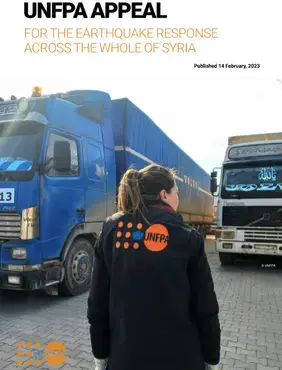On 6 February, 2023, two major earthquakes with 7.8 and 7.6 magnitudes, respectively, hit areas of Türkiye and Syria, causing mass destruction of residential and public buildings, including hospitals, and significant loss of life. As of 9 February, more than 3,300 people have died and over 7,300 are injured — figures that are expected to increase significantly over the coming days as large numbers of people remain trapped under collapsed buildings. The full extent of the earthquake’s impact remains unclear, but the damage has been significant.
Idleb, Aleppo, Lattakia, and Hama governorates were severely impacted. Harsh weather conditions, including snowfall and freezing temperatures, have impeded emergency responses and the wellbeing of survivors. Lack of heavy machinery to remove rubble, especially in north-west Syria (NWS), has also complicated search and rescue efforts, and insufficient electricity and fuel have impacted services at hospitals and individuals’ ability to access health care and essential gender-based violence services. Damage to infrastructure has interrupted the delivery of basic social services including life-saving reproductive health services, putting the health and lives of pregnant women and their unborn babies as well as newborns at risk.
Women and girls, including pregnant and lactating women, are disproportionately affected by earthquakes and natural disasters, requiring tailored interventions to respond to their reproductive health needs and protection risks. As has been documented during assessments conducted by UNFPA throughout Syria, pre-existing vulnerabilities and inequalities affecting women and adolescent girls are expected to worsen, further exposing them to various forms of GBV. The disaster follows over a decade of crisis in Syria and compounds significant pre-existing humanitarian needs.


